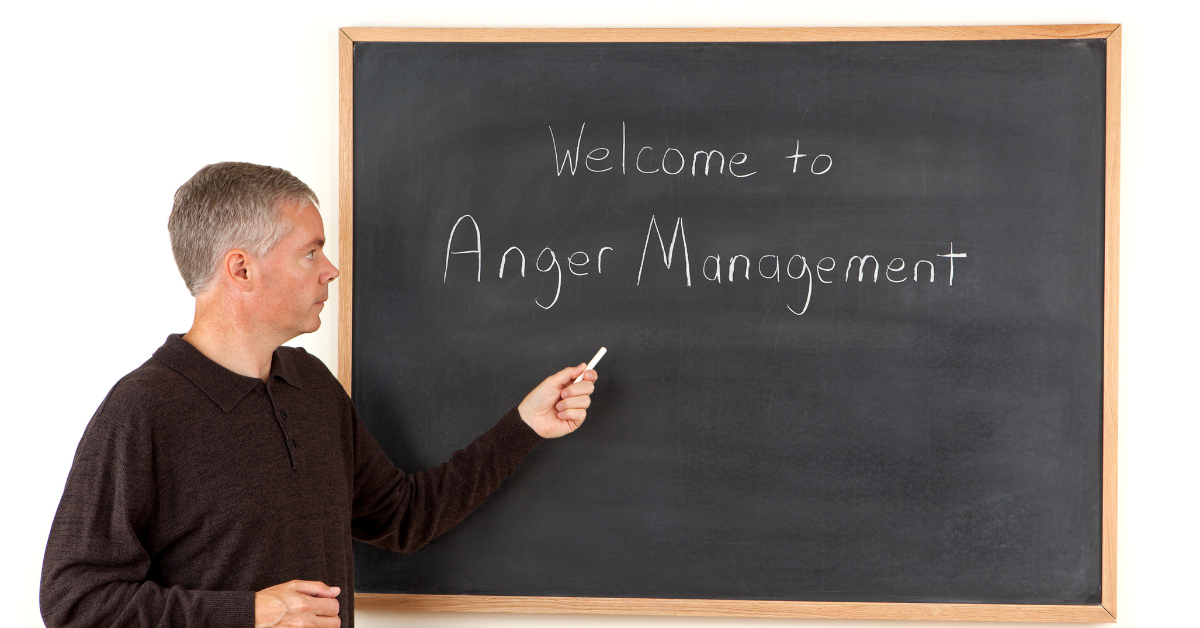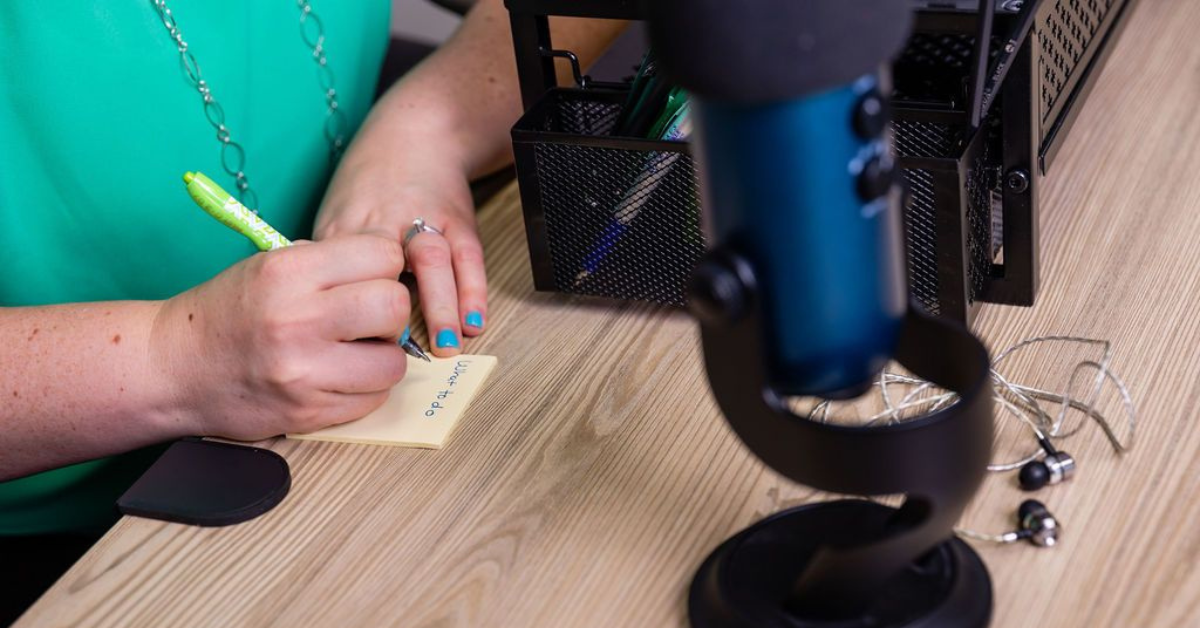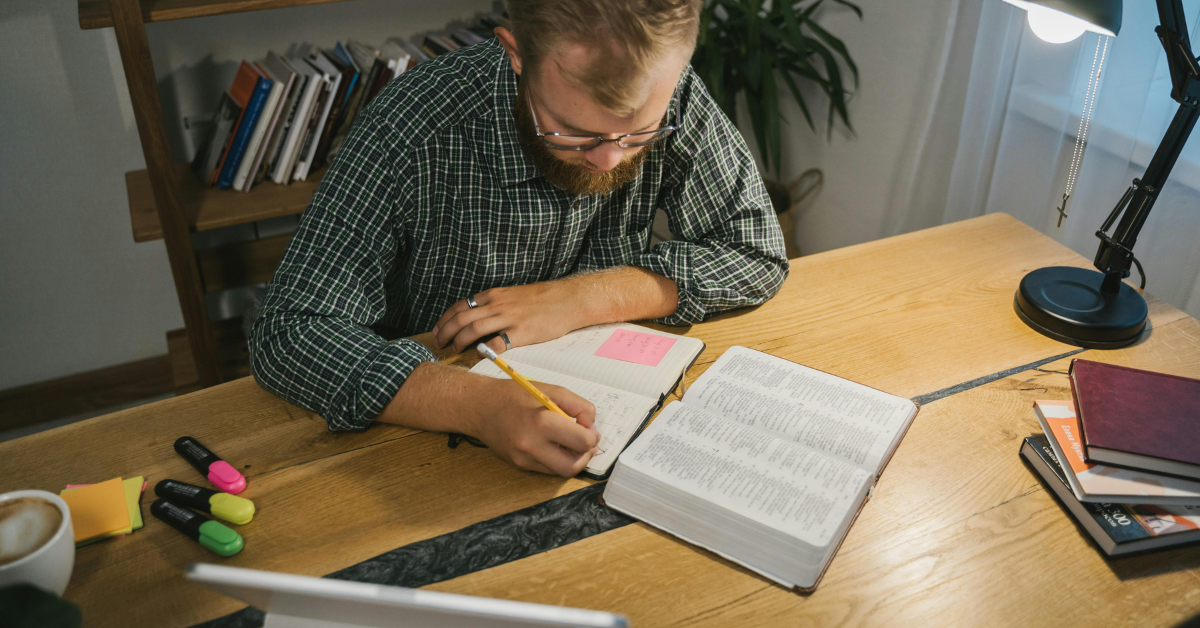45. Improving Nutrition to Help Anxiety with Dr. Katie Thomson Aitken, ND
We are privileged to have our first ever Canadian guest on the podcast, Dr. Katie Thomson Aitken. Dr. Katie is a licensed naturopathic doctor who enjoys helping people with all kinds of health goals achieve positive changes in their health and in their life. She also has a passion for mental health, the management of stress and anxiety, and helping individuals connect with their higher purpose.
Episode Highlights:
- What are the benefits of seeing a naturopathic doctor?
- Is naturopathy an alternative medicine?
- Can naturopathy be used alongside other medical and therapeutic techniques?
- The 5 Pillars of Mental Wellness
- The role of neurotransmitters in anxiety
- Nutrition-related concerns of patients with anxiety and steps to take to help improve nutrition.
- Dr. Katie’s book: Create Calm.
Episode Summary:
Welcome back to Christian faith and OCD! Today, I’m excited to chat with Dr. Katie Thompson Aiken, a naturopathic doctor, about the powerful connection between physical health and anxiety.
Dr. Katie explains how naturopathic medicine works with traditional treatments—not against them—by looking at the whole person. Instead of just focusing on anxiety symptoms, she considers factors like hormonal imbalances, nutrition, digestion, and even social connections to create a truly personalized care plan.
One of the biggest takeaways from our conversation is how much nutrition affects anxiety. Some people are so focused on eating “clean” that they actually miss key nutrients, while others struggle with irregular eating due to stress. Dr. Katie shares simple, doable strategies—like adding more protein and produce to meals—to help support your brain and body. No extreme diets, no guilt—just practical ways to feel better.
We also talk about something I’ve noticed with my own clients: how hunger cues can get mixed up with anxiety symptoms. If you’ve ever gone too long without eating and suddenly felt overwhelmed or lightheaded, this conversation is for you! Dr. Katie offers helpful tips for eating regularly and making sure your body has the fuel it needs to keep anxiety in check.
Episode Summary:
Today, I’m excited to talk with Dr. Katie Thompson Aiken, a naturopathic doctor. I’ll be learning alongside you as we explore naturopathy and how it can support mental health, particularly anxiety.
Dr. Katie explains how naturopathic medicine treats the whole person, not just a symptom like anxiety. By assessing factors like digestion, hormones, lifestyle, and relationships, she creates a comprehensive care plan. She emphasizes that anxiety is complex—it affects physical, mental, and spiritual health, and all these areas need to be addressed.
We also discuss the concept of treatment-resistant anxiety, where some people don’t respond to conventional treatments. Naturopathy offers alternative solutions like lifestyle changes, supplements, and acupuncture, and can even work alongside traditional treatments for a balanced approach.
Dr. Katie talks about the importance of regular meals to fuel the body and mind. Anxiety can cause people to under-eat or overthink their diet, sometimes leading to issues like orthorexia. It’s crucial to eat regularly and make sure we’re nourishing ourselves with the right balance of foods, especially produce and protein, to help manage anxiety.
We wrap up with practical advice on how small changes in diet can have a big impact on mental wellness. For example, adding fruits or protein to meals can support brain function and stabilize blood sugar, which in turn can ease anxiety.
Tune in to the full episode and find out what small changes you can make to improve your overall wellness!
Resources and Links
Dr. Katie Thomson Aitken, ND
Book: Create Calm
Transcript
Welcome to Hope for Anxiety and OCD Episode 45. If you’ve been following the show, we talk about all kinds of things related to not just the mental health aspects of anxiety but also our physical health. When our physical health is working good, it combines well and helps our mental health and both of those things need to be functioning properly in order for us to get to a better state of overall health.
Carrie: So today on the show we are talking with Dr. Katie Thompson Aiken, who is a naturopathic doctor. This is going to be an interesting episode for me as well since I don’t know that much about naturopathy and that pathway. I’m probably going to ask some questions that some of you might have as well, and we’ll both be learning along together. So thank you so much for being here.
Dr. Katie: Thank you so much for having me. It’s always a pleasure to talk about anxiety and the mind-body connection.
Carrie: And a random fact, I think you are the first Canadian that I’ve had on the podcast. And I know that we have listeners from all over the world, so it’s good to have people outside of America on every once in a while. I think this adds to our diversity.
Dr. Katie: That’s wonderful. It’s my absolute pleasure to be here.
Carrie: Let’s talk a little bit about how seeing a naturopathic doctor benefits people in a little bit different way than seeing a doctor that follows traditional Western medicine.
Dr. Katie: That’s a great question. I think we will start talking about naturopathic medicine. A lot of people think of it as an alternative medicine, but I like to use the word complimentary. So what I do works alongside some of the traditional care choices that someone might have when they’re looking for support with their health concerns, whether that’s anxiety or for something. In a traditional model.
If you’re experiencing anxiety, you might be offered medication. You might be offered therapy, cognitive behavioral therapy, or group therapy and sometimes that’s it. But we know that there are a lot of things, lifestyle wise, that can be supportive of anxiety. There’s also a lot of conditions in the body: hormonal imbalances and nutritional deficiencies that can contribute to anxiety. When you see a naturopathic doctor, one of the big differences is that naturopathic medicine treats the whole person rather than looking at just one piece of someone’s health, say the anxiety.
When I see a patient and when my colleagues that are naturopathic doctors treat someone, we are asking questions about all systems of the body and what’s going on with your hormonal health. How is your digestion? Do you have cardiovascular risk factors like high blood pressure? And piecing those all together to come up with a comprehensive care plan. We’re also asking about lifestyle. How are you living? How are you eating and moving and sleeping? How is your connection with their friends and family? Because all of those pieces then support or can get in the way of optimal health and including optimal mental.
Carrie: Dr. Akin. I think that you make a great point there that anxiety is a complex issue. It’s not just a physical health issue. It’s not just a mental health issue. It’s not just a social or spiritual health issue. This is an issue that affects many different domains of our lives and so it’s important that we’re able to look at all of those different domains and evaluate them. So I like that, that’s something that you bring to the table for people that you work with.
Dr. Katie: Thank you. Yes. I think it’s very important that we acknowledge that no one we’re talking about any house condition. There are physical, mental, and spiritual causes and solutions for health concerns. And my approach is to look at each of those, look at the resources that people have available through that, and really work to find solutions that support people through their physical, mental, and spiritual wellbeing. I know sometimes maybe a rut that certain doctors can fall into is having a one size fits all approach.
Carrie: And sometimes the one size fits you and sometimes it just doesn’t seem to fit. And so I imagine you probably have patients come to you who have been to other doctors before, or have tried other courses of medication maybe, and haven’t achieved the results that they were hoping for.
Dr. Katie: Absolutely. I see a lot of patients that have resistance or like what’s considered treatment resistant depression or treatment resistant anxiety. We know that the standard medications for anxiety work for about 80% of people, which is great, but that leaves a whole 20% of people who do not respond to first-line medication. Some folks go through a lot of trial and error and they don’t find something that works for them and it’s the same with natural therapies. Right?
We have things that work very well for a lot of people, but not everything works for everyone. I have patients that certainly have tried many things before coming to see me are quite frustrated and it’s always very rewarding. We can try new tools like lifestyle supplements, acupuncture, and be able to get a different result for those patients, as well as patients who are, for whatever reason, just not interested in pursuing other avenues of care.
Perhaps they had a family member that had a bad experience with medication and they’re a little more hesitant to try it. So being able to open up more options for whatever someone’s reason is for choosing naturopathic care. I will say I also have patients that do naturopathic care alongside conventional medicine. I have a lot of patients that take medications and we work on supporting their lifestyle so that their medication doses are effective so that they can stay at the lowest effective dose that they’re reclaiming their health and their life in terms of how they want to be living and their choices.
Carrie: That’s an awesome option to like, so it doesn’t have to be completely one or the other. You can really combine both together. I like that.
Dr. Katie: I think it’s really important to know that you have lots of choices and it doesn’t have to be one or the other, we can work together so that you feel supported in your mental wellness.
Carrie: Talk with us about what you consider to be the pillars of mental wellness.
Dr. Katie: In my practice, I mentioned that we’re talking about how things come up looking for other screens, then also assessing lifestyle factors. I call those the pillars of performance. We go through five of those: nutrition, exercise, sleep, prayer or mindfulness and connection. Those are the pieces that we talk about in terms of what are your current habits right now. Then they’re also the pillars moving through my tranquil minds program, where we really work on building up healthy habits in each of those categories.
Carrie: Okay. So we want to dive in and talk a little bit more about nutrition today. We do have some other guests that are going to be talking about sleep. We have had an episode on mindfulness, which was really great. I encourage people to go back and listen to that. We’ve had an early episode of prayer. Tell me about some nutrition concerns that you’ve seen in your patients with anxiety.
Dr. Katie: Often when I start working with patients who have anxiety, we end up in one of two situations, nutritionally. One is people who are eating very, what they would call clean. They’re very concerned about what they’re eating. They want to eat in a way that’s going to optimize their mental wellness and they actually are often overthinking.
Then on the other side, we have people who are overwhelmed in general, or maybe not educated around nutrition. People who have symptoms of anxiety that manifest through the digestive system. Maybe they have IBS nausea, low appetite associated with their anxiety. Often these folks are not eating regularly and don’t really know even where to start.
When it comes to managing their nutrition. We always start with understanding. Where someone’s starting from. If it’s safe for them to record their food for a week, we often will do that. We’ll do a diet recording. That’s not the right first step for everyone. Some people find that upsetting and we don’t want to trigger any disordered eating habits. So always be cautious around starting recording, but once we know what someone’s feeding, then I like to look at first of all, for regular. Is someone eating often enough and I think this gets overlooked a lot when it comes to mental wellness, we think of, are you eating the right things? Are you eating quote-unquote healthy foods? We miss the main piece, which is that if you’re not nourishing yourself, then your brain isn’t getting everything that it needs in order to feel well. So people that are on a weight loss protocol or a restricted diet, they may be experiencing anxiety simply because they’re under fueled, like their body doesn’t have what it needs to feel well, and I see that more often than I do.
Carrie: I think that that’s huge and I want to circle back around to a couple of things that you said. One was, the people that are very focused on eating clean or eating a certain way, but it’s to an extreme level. There is actually something called orthorexia where it’s kind of a subset of anorexia where people will only eat very specific, limited foods that they believe to be clean or healthy for them.
Sometimes those people can actually be nutritionally deficient because they’re not getting enough, maybe fat, for example, or enough protein in their diet. I’m sure that that’s something that you’ve probably encountered at some point or another.
Dr. Katie: Certainly yes. I think that’s something we have to be very careful of orthorexia . Definitely in the field of naturopathic medicine there is a lot of nutritional advice that gets presented through natural healthcare and nutritionists. I think it’s something to be mindful of that each person is different and the most important thing is being fueled first. So sometimes the work is actually including more food in the diet. In fact, that’s always where I start, regardless of someone’s level of nutrition, we always start with, what can we add before we ever look at what could we maybe reduce.
Carrie: That’s a good point. So like, if people are saying, well, I don’t really eat enough vegetables instead of focusing on cutting something out first saying, okay, well, can you add one more vegetable maybe per day, then you’re already eating. That sounds better than, oh gosh, I’ve got to stop eating junk food. Right.
Dr. Katie: A hundred percent and that’s actually stage two of my nutritional approach, which is adding in produce and protein when it comes to managing blood sugar and helping with anxiety. It’s making sure that you have all the pieces that your brain needs to make all the neurotransmitters that can encourage people to look at what they’re eating and say, do I have a piece of fruit or vegetable in this new snack? Does this meal or snack have any sources of protein in it? For a lot of my patients, that’s a good starting point of starting to add it in by saying, oh, typically my breakfast is a piece of toast. Okay, well maybe we can add a piece of fruit to that. Or maybe you can have a toast and a fruit smoothie. That’s got some protein powder in it. Maybe you want to start with adding a piece of bacon to that toast and getting some meat in the morning. We’re not demonizing food. We’re just looking for options to increase both the protein and the produce pieces in the nutrition.
Carrie: I liked that a lot. I think that that’s a great starting point for people to help improve their nutritional intake. One of the things that you talked about was people not eating enough or not eating on a regular basis, which can also happen with anxiety. And one thing I’ve found or noticed with some of my clients is they’re not tuned in really to their body because tuning into their body means I’m noticing the anxiety symptoms. Sometimes that means that they’re tuning out the hunger signals as well. Like I’m not really paying attention to that. I’ve got to work or I’ve got to stay focused on something else and just plow forward. And next thing you know, it’s two o’clock and they haven’t eaten all day. That means they haven’t had any fuel for that day.
Dr. Katie: Absolutely. I see that as well. I also sometimes see a confusion of hunger cues and anxiety cues. Not feeling well in the stomach, having some nausea and going I must be anxious rather than reflecting and saying, well, when was the last time I ate?
I’ve worked with many people where we’ve been able to separate those cues out and try eating. I give my patients a guideline of four to six hours. So when you’re looking at your day, especially if you’re not used to eating regularly and say, are there times where I’m going more than six hours without eating and then, or more than four hours.
And when you have anxiety, feelings of anxiety, thoughts come up and it’s been that long since you ate, just questioning, am I really worried about this, or should I have a snack? And sometimes having something to eat really alleviates some of that anxiety feeling because your brain is more fueled, you’re in a calmer place. It also takes away some of those physical symptoms that are actually hunger.
Carrie: I think that there have been times where I’ve felt nauseous or light-headed, and I knew I needed to eat something right now. Like it’s been a while or I’ve been busy or I’ve been out doing things and you can definitely have some symptoms from that. That totally makes complete sense to me. Sometimes you just need a snack.
Dr. Katie: Sometimes you just need a snack. I know for myself. I had an experience like this. I was picking up my daughter from daycare and had a busy day. We were walking home. So I was getting lots of exercise that day and as I was approaching home, I just noticed all of these worried thoughts were coming up for me. I was like, oh, I think my husband was traveling that day. I started wondering, is he going to get home safe? How’s this going to go? And I just was like, When was the last time you ate? Why are you worrying about this? Like there’s no reason for me to think that my husband wouldn’t come home safely that night and sure enough, it had been about six hours, so I got an after-school snack. And with my daughter, I didn’t have an anxious evening. I just had an anxious thought. So from my personal experience and from working with my patients, it’s definitely something that can be helpful for a lot of people.
Carrie: Yeah. Can you elaborate on that point that you made about neurotransmitters and protein because neuro-transmitters are like the things that are targeted essentially in medications for anxiety, like, SSRI, those types of things are affecting serotonin. So talk with us a little bit about that protein connection.
Dr. Katie: Protein is the building blocks of your neuro-transmitters without getting overly technical about amino acid breakdowns, and which ones become, which neuro-transmitters I always invite my patients to just consider. Do you want your body to have just enough protein to make it your neuro-transmitters or do you want to have abundant protein so that it’s easy for your body to find the building blocks? It needs to make these neurotransmitters.
I don’t do a lot of precision medicine or genetic testing in my practice. That’s just not how I focus. I focus more on basic principles, like eating protein because I find that’s more accessible for most people who are really struggling, but we’re looking at some of those more precision pieces we get into this idea that, what if you have a genetic polymorphism or a change in your own genome that makes it harder for you to make a certain neurotransmitter or piece of mechanics in your body.
That’s important for your nervous system. One of the ways nutritionally that we look to support that is just making sure that there’s an abundance of everything that you need in order to make those systems run. But really there is no need in most people, I would say to do that precision piece as a starting point, most people are not having tons of protein throughout their day.
And so just looking at that, especially if you’re feeling anxious and your stomach’s upset, it doesn’t feel good when you eat certain foods, looking at how to get in just regular sources of protein, eggs, chicken, fish, like just food can really make a difference in making sure that you have the pieces that you need.
The other reason that I really love focusing on protein for my patients with anxiety is it’s very stabilizing to blood sugar. One of the things we’re learning about anxiety and blood sugar is that folks who have anxiety seem to be sensitive to hypoglycemia. So when they eat something that’s high in sugar, their body is very good at removing it from the bloodstream. And actually their blood sugar can go too low and cause that like, shakiness and nausea.
You were describing earlier as like, oh, I’m hungry and I need to eat. Including protein when you eat for a lot of people with anxiety causes that to be more modulated. So less of those crashes and spikes and more of that, even blood sugar, which facilitates an even mood sugar is the fuel that our brain is using to make decisions and feed our nervous system throughout the day. So when we can eat in a way that keeps it stable, we can keep our thinking more stable.
Carrie: That’s good. I know that it’s very easy to eat a lot of carbs and sugar, especially in the American diet and the processed foods that we have in different things. And so focusing on those stabilizing factors of protein, that sounds really helpful, and I’ve never heard anyone break it down quite like that. So I appreciate that explanation with neuro-transmitters and anxiety. We talked a little bit about eating more protein, focusing on adding things that we need to add, like produce. Are there any other small steps that you encourage people to take to help improve their nutrition?
Dr. Katie: There’s two more steps that I look at the third and know we can refer back to your earlier episode on mindfulness, but is to eat mindfully. When we pay attention to what we’re eating, we’re more likely to get those hunger cues that we were talking about earlier. Understand our fullness. We’re less likely to have emotional eating when we’re paying attention to our food and we’re less distracted and it also involves our brains. And eating and really, that’s a great tool that a lot of us forget about when we’re paying attention to our food and we’re taking time to taste and savor it.
Our brain tells our digestive system, hey, food’s coming. And that creates an opportunity for our digestion to be optimal, which we want. So we can then absorb all of those wonderful nutrients that we’ve taken all the effort to include in our diet. If you’ve taken time to chop up a salad or open a bagged salad, instead of opening something that was a little bit easier grabbing some of those like chips or fries, or even doing both, including some salad and some French fries with your food rather than one or the other.
You want your body to be eating those and you want to enjoy them, especially when you are eating foods that you’re eating for pleasure, not just for nutritional value. You want to save for that. And those moments of joy beyond their helpfulness nutritionally, it’s soul food. It’s good for our spirits to say, this is delicious and I’m enjoying it with my friends and family. This tastes really good. Having those moments of pleasure when eating and paying attention, I think is really important. You feel like that helps our digestive system. A hundred percent when we’re tasting our food, the digestion, we always forget.
We think it starts like in our stomach, but the digestion starts in our mouth and it’s not just the chewing. We have this wonderful sensory organ of our tongue and our nose, and that’s sending information to our brain saying, hey, this is what’s coming. When we taste foods like vegetables that have bitter notes that cause our digestive system to increase its gastric juices, to say, here’s some stomach acid, here’s some enzymes. You’re going to need this to absorb this food properly in order to break it down.
When we really pay attention to that sensory experience, we maximize digestion. I feel like you’ve just given us all permission to enjoy our food because so many times people feel like, well, if I’m going to eat healthy, it’s like, here I am with the bran flakes, like choking it down, like, I don’t even want to be eating this, but I think that you can find good foods and eat healthily and enjoy your food.
I hope so. I think that that is really where the joy comes in. When you look at how I can increase my vegetables, how can I enjoy things like that. It’s a lot easier to do when you actually enjoy eating the vegetables. I love to cook and I’ve been on this journey of discovering my favorite way to eat all of the different vegetables. So for example, my favorite way to eat cauliflower is roasted with Kumon and lots of olive oil and salt. Yes. It has salt and it has known fat on it, but that doesn’t make it a bad food. In fact, it makes it delicious and then I eat more of it.
Carrie: Yes. I like cauliflower roasted like that in the oven. I don’t usually eat it any other way, which is kind of interesting. I don’t necessarily like it raw and anyway, that’s a whole nother issue. But I think finding the ways that you enjoy the vegetables is important. If you’re going to be eating more of them, if you just think, oh, I’ve got to eat it this way and I can’t. I have to make myself enjoy it. That’s just going to be torture. Find some good recipes, experiment, enjoy the process and get more vegetables in your day. Tell us about your book. Create Calm.
Dr. Katie: My book Create Calm was really brought out of my wish to share the tranquil minds method that I work with my one-on-one patients on with more people. Like I said, I practice in Ontario, Canada. So I really can only help people who are in Ontario, Canada. I was feeling really limited by that. I took my clinical methodology where we go through the five pillars of performance that we talked about earlier and put them in this book in order to educate how to go about increasing the pillars.
There’s a whole section on nutrition, which goes into depth about how to do the things we talked about today. Like including protein and produce and focusing on eating regularly and mindful eating. But there’s also sections on the rest of the pillars that we didn’t get to today: how to maximize your sleep hormones, how melatonin comes in, how you can make your own melatonin, how to think about bringing in mindfulness and how to evaluate your exercise. So that again, like we talked about enjoying your vegetables, you’re actually finding joy in movement rather than that obligatory. Well, I better go for a run because otherwise I’ll have more anxiety.
Carrie: Good and the tranquil minds program, you actually have an online program as well.
Is that right?
Dr. Katie: I do. So the tranquil mind was born out of my clinical work and some folks learn better from a book, but some people learn better from an online course. The training program is available through online modules where you can listen to me talk and you get access to a workbook that walks you through over six weeks kind of like a bootcamp style of revamping these health habits, where each week we’re working on a different piece of each pillar.
So we start with eating regularly and looking at your boundaries. Then we move into protein and produce and exercise. Then we really grow from there till we reach the last week, which is our connections module. We talk about getting to know yourself, your relationship with yourself, looking at your community relationships and how to develop closer friendships. And then also your spiritual health, finding that connection to God or to however you connect with something bigger beyond our day-to-day self.
Carrie: Okay. Towards the end of every podcast, I like to ask our guests to share a story of hope, which is a time where you’ve received hope from God or another person.
Dr. Katie: I love this question. I love this segment on your other episodes, because I think it’s so important to just reflect back and be grateful for the times where you have experienced that. I know when I look back at my life, there were a few times that I was trying to pick from, but I wanted to talk about my clinical work and seeing my patients. Sometimes I meet people and I feel like I’m looking at them almost through a cloud. If you’re trying to see what’s really going on, I always experienced so much hope and gratitude. When I feel like I can see a peak behind who this person is behind their anxiety and when I get to hear things like I don’t have anxiety anymore, or I really love myself now, I feel like I finally understand self love, that gives me more hope than anything else in my life. I’m just so grateful for the opportunities to witness that.
Carrie: That’s awesome. That’s really beautiful. Seeing the true person that’s underneath those like layers of symptoms is great. So thank you so much for being on the show today. I think that this has been informative. I know that I’ve learned some things about nutrition and anxiety, and I hope that other people have as well.
Dr. Katie: Thank you so much for having me. It’s been my absolute pleasure.
If you love the show in general or found this episode particularly helpful, please share with a friend.









